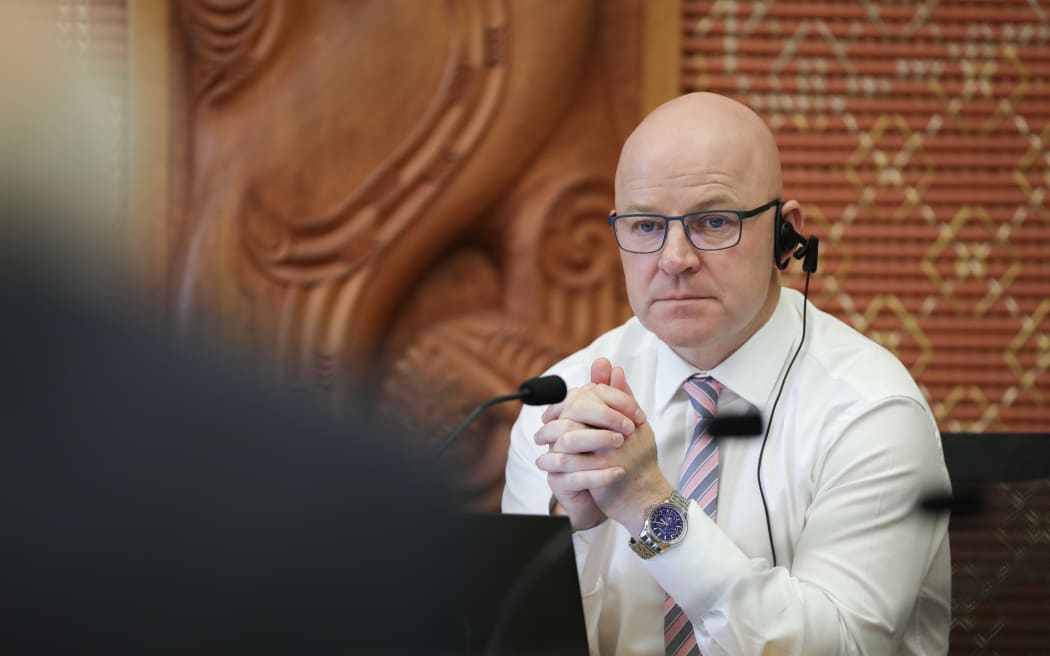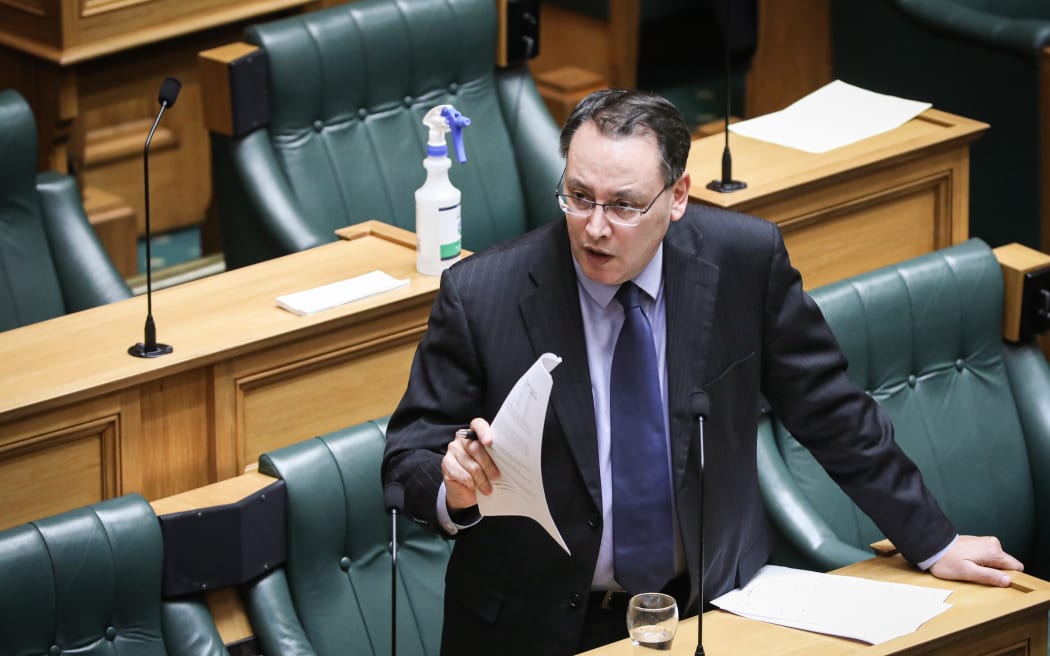In the words of one MP recently when talking about how select committees work, sometimes bills come before the committee and they need very little work before going back to the House, while others need quite a bit of panel-beating.
In the latter category we can easily fit the Therapeutic Products Bill which this week passed its second reading. The Health Select Committee which examined the legislation digested a vast amount of public submissions taking issue with the Bill. This in turn has informed a robust debate between MPs.

Health Minister Ayesha Verrall Photo: VNP / Phil Smith
The Government bill - which provides a new regulatory framework for therapeutic products (medicines, medical devices, natural health products, and active pharmaceutical ingredients) - is a useful example of how legislation gets shaped through a rigorous select committee process.
Submissions
Over 16-thousand submissions were received. Oral hearings were held in late March and 210 organisations and 127 individual submitters were heard. The vast majority of submitters were opposed to aspects of the Bill. The Health Minister Ayesha Verrall acknowledged this during her second reading speech.
“I recognise that many people who submitted on the bill were opposed to it or had concerns about how it would affect them, their whānau, or their businesses. Over 9,000 submissions focused on the inclusion of natural health products (NHPs) and called for their exclusion from the bill or that they be regulated in a risk-proportionate way. I also acknowledge that more than 700 submitters expressed concerns about the bill's potential effect on rongoā Māori (traditional healing ways).”
As a response, the Minister is introducing numerous Supplementary Order Papers (SOPs) to address some of the concerns in the Bill, including provision for small-scale NHP manufacturers to be excluded from the legislation as well as rongoā.
“I'm comfortable that the evidence available suggests these products don't pose a significant risk to public health, so the SOP will introduce changes so that small-scale natural health products will be able to be exempted from a product authorisation or manufacturing licence from the new regulator where their products are made and supplied in person to customers in New Zealand,” Dr Verrall said, adding however that there was still a need to regulate natural health products as they are not risk-free.

National Whip Matt Doocey in select committee, wearing an ear piece to help communication with online submitters. Photo: ©VNP
The minister said the committee had also proposed amendments to the advertising provisions in the bill. While it agreed with the need to regulate advertising of therapeutic products, especially products not authorised for use in this country, “sensible amendments will clarify that patient fundraising, advocacy, and media activities are not intended to be prevented”.
Robust debate
With the election so close, it’s no surprise that debate on this issue was heated. National’s Matt Doocey laid into the Government over the Bill, claiming the minister had flip-flopped over proposed amendments discussed in the committee as a result of pressure from public concern over the “regulatory overreach” in the original iteration of this legislation.
“It's another back-down bill. Could you imagine that days after the commentary comes back to the House, the Minister is already desperately putting up SOPs in defence and waving the white flag because the Government knows they have got this wrong?”
Doocey is a member of the Health Select Committee which, according to a note on the Bill’s official webpage, was unable to reach agreement on whether to recommend that the Bill be passed, but recommended all amendments by majority. It’s worth noting that the 10-person committee is evenly split between MPs from governing and non-governing parties.

National Party MP Shane Reti in the House Photo: ©VNP / Phil Smith
Another National Party member of the committee, Dr Shane Reti, accused the Government of disrespecting the select committee process whose purpose is to provide scrutiny, public accountability to all the information available.
"We did not have all that information, and five days later, the Minister announces Supplementary Order Papers (SOPs) that take that information into account. They couldn't wait five days? There was such urgency to ram this through they couldn't wait five days and let the select committee have the same information that the Minister has had to progress these SOPs in the next stage. That is disrespectful."
While some issues remain unresolved, various amendments that have been proposed to the Therapeutic Products Bill will be ultimately sorted through at the next stage of this legislation’s passage: the committee of the whole house.
People power
The system in place allows the opportunity for MPs to panel-beat a bill into something acceptable to all, or most, and the general public has a part to play in that.
Amidst the tribal debate on the Therapeutic Products Bill in the chamber, the Green Party MP Ricardo Menendez-March offered a positive take on things, pointing out it was not impossible for MPs to all rally behind the goal of having acceptable safety quality and efficacy or performance of therapeutical products across the spectrum.
“I think, in some ways, while I know the National Party was talking about the Labour Party flip-flopping, what I want to frame it as is actually Government responding to overwhelming feedback. Some of it remains unresolved, but what it shows is the power of the grassroots. It shows the power that the public actually has in guiding the direction of Government legislation. This is how the Green Party has worked on several pieces of legislation historically where I think we forget that actually people have the power to pressure Government into moving into the right direction.”

Ricardo Menendez March in Select Committee. Photo: VNP / Phil Smith

